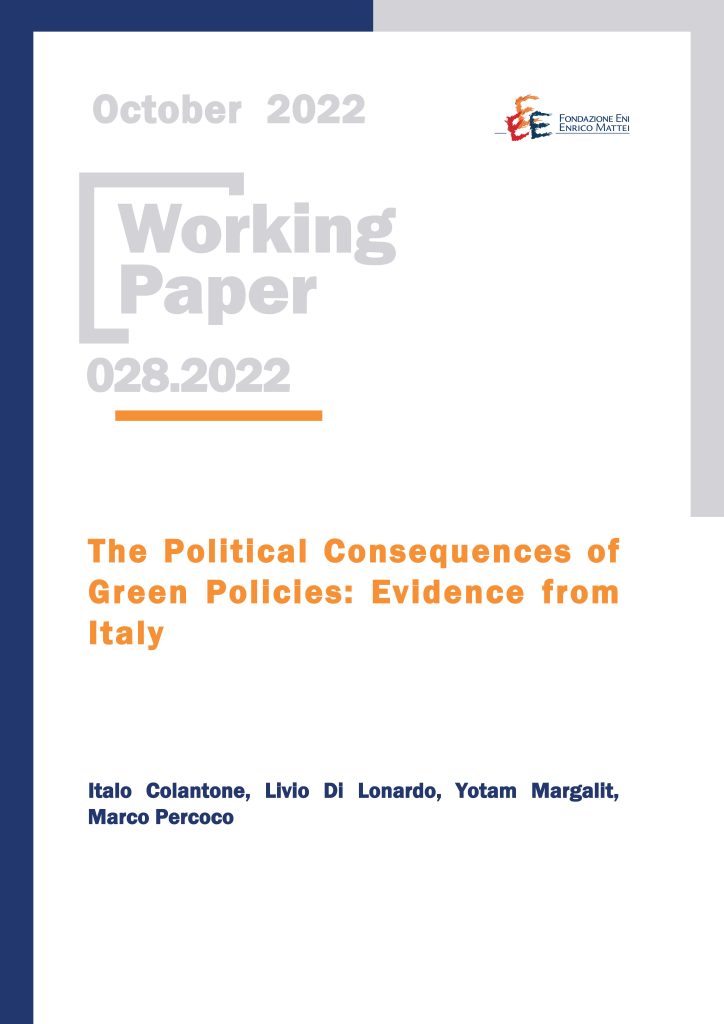The Political Consequences of Green Policies: Evidence from Italy

21.10.2022
Italo Colantone (Bocconi University, Baffi-Carefin Research Center and CESifo); Livio Di Lonardo (Bocconi University, Dondena Research Center); Yotam Margalit (Tel Aviv University, Department of Political Science); Marco Percoco (Bocconi University, GREEN Research Center)
P100, D700, Q500
Environmental politics, green policies, distributional consequences
For many governments, enacting green policies is a priority, but such policies often impose on citizens substantial and uneven costs. How does the introduction of green policies a˙ect voting? We study this question in the context of a major ban on polluting cars introduced in Milan, which was strongly opposed by the populist right party Lega. Using several inferential strategies, we show that owners of banned vehicles — who incurred a median loss of €3,750 — were significantly more likely to vote for Lega in the subsequent elections. Our analysis indicates that this electoral change did not stem from a broader shift against environmentalism, but rather from disaffection with the policy’s uneven pocketbook implications. In line with this pattern, recipients of compensation from the local government were not more likely to switch to Lega. The findings highlight the central importance of distributive consequences in shaping the political ramifications of green policies.
***
Suggested citation: Colantone I., Di Lonardo L., Percoco M., ‘The Political Consequences of Green Policies: Evidence from Italy’, Nota di Lavoro 28.2022, Milano, Italy: Fondazione Eni Enrico Mattei
